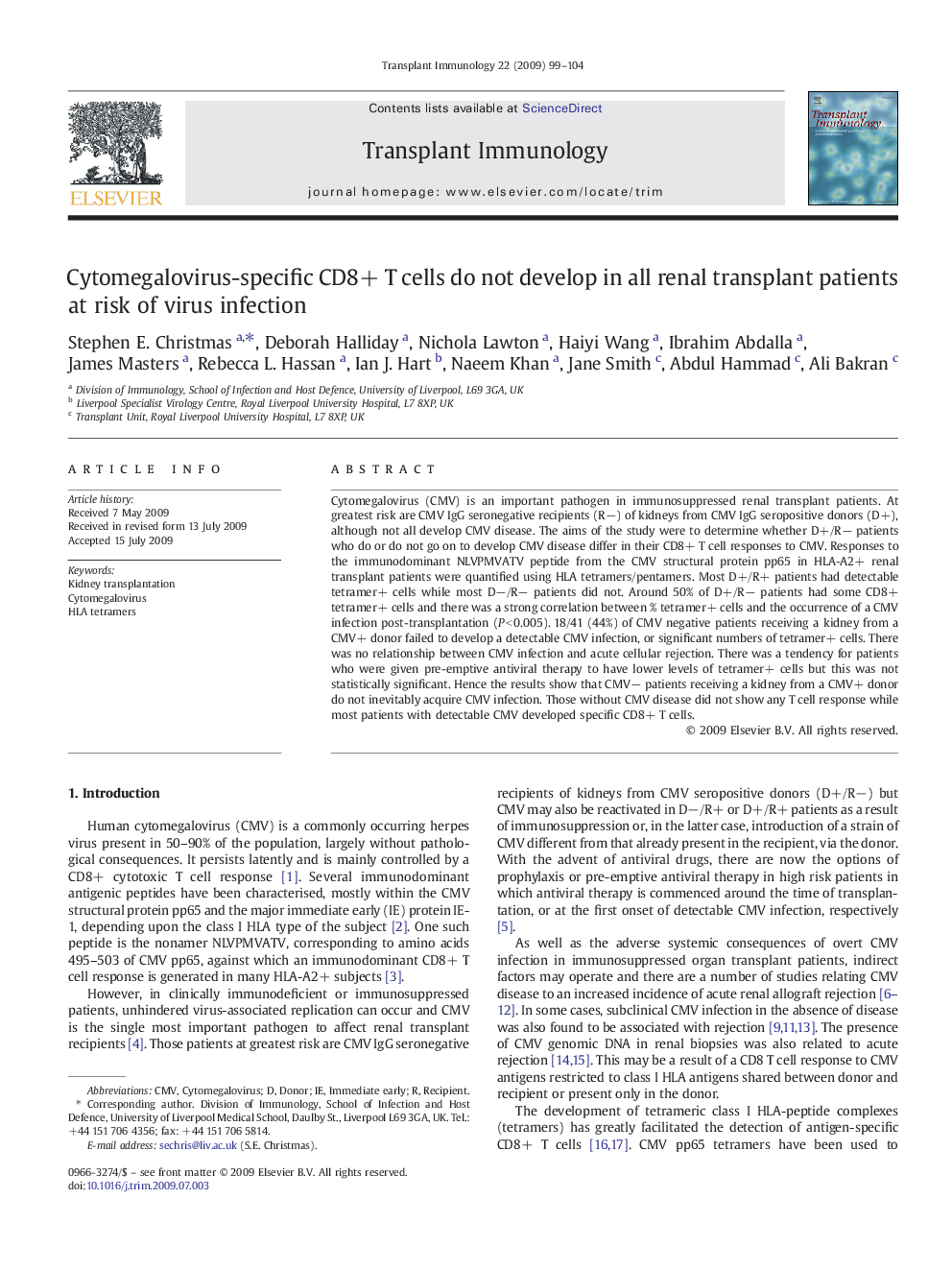| Article ID | Journal | Published Year | Pages | File Type |
|---|---|---|---|---|
| 3392400 | Transplant Immunology | 2009 | 6 Pages |
Cytomegalovirus (CMV) is an important pathogen in immunosuppressed renal transplant patients. At greatest risk are CMV IgG seronegative recipients (R−) of kidneys from CMV IgG seropositive donors (D+), although not all develop CMV disease. The aims of the study were to determine whether D+/R− patients who do or do not go on to develop CMV disease differ in their CD8+ T cell responses to CMV. Responses to the immunodominant NLVPMVATV peptide from the CMV structural protein pp65 in HLA-A2+ renal transplant patients were quantified using HLA tetramers/pentamers. Most D+/R+ patients had detectable tetramer+ cells while most D−/R− patients did not. Around 50% of D+/R− patients had some CD8+ tetramer+ cells and there was a strong correlation between % tetramer+ cells and the occurrence of a CMV infection post-transplantation (P < 0.005). 18/41 (44%) of CMV negative patients receiving a kidney from a CMV+ donor failed to develop a detectable CMV infection, or significant numbers of tetramer+ cells. There was no relationship between CMV infection and acute cellular rejection. There was a tendency for patients who were given pre-emptive antiviral therapy to have lower levels of tetramer+ cells but this was not statistically significant. Hence the results show that CMV− patients receiving a kidney from a CMV+ donor do not inevitably acquire CMV infection. Those without CMV disease did not show any T cell response while most patients with detectable CMV developed specific CD8+ T cells.
